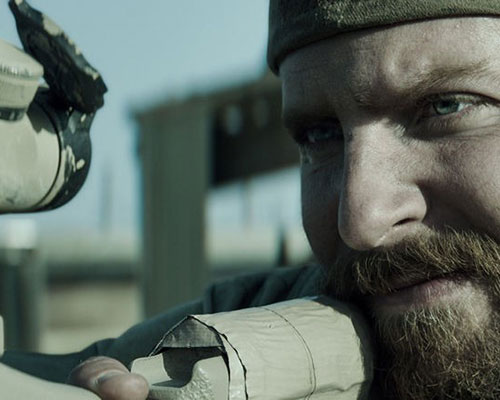
Hear “Take Two Movie Reviews” every Saturday and Sunday at 11:45 a.m. and 1:45 and 5:45 p.m., on WHAV.
The late Gore Vidal famously dubbed this country “The United States of Amnesia.” If he were alive today, he might say he was proven right in light of how many view the Iraq War. Despite the fact that the war is a fairly recent event, many seem to be at risk for forgetting the reasons behind it and the complex issues that arose out of it. While 2008’s “The Hurt Locker” attempted to look at the war from the soldier’s point of view and raised many complex questions which remained largely unanswered, Clint Eastwood’s “American Sniper” does not take the same approach. Indeed, many have called it a simple tale and in some ways, it is.
Based on the best-selling memoir of the same name by Navy SEAL Chris Kyle, “American Sniper” is very black and white. Kyle, as portrayed by Bradley Cooper, is the good guy–a sniper with the heart of gold whose actions save the lives of many fellow soldiers. The people he takes out are bad guys including the chief baddie, Mustafa, whose game of cat and mouse with Kyle makes up a lot of the tension in the movie.
While recent criticism about the real Chris Kyle, who was killed in 2013 by a fellow veteran who was suffering from PTSD, has made the headlines recently, it is possible to enjoy American Sniper purely on the basis of its artistic merit. Eastwood’s directing is sharp and never lags while Cooper is more than deserving of his Oscar nomination for Best Actor. His Kyle is far from perfect, but nonetheless likeable and relateable. If anything, one of the main problems with American Sniper is that the audience knows too much of the backstory of Kyle and of Eastwood’s well-documented political views. This is one case where a lesser-known director less may have been an improvement.

